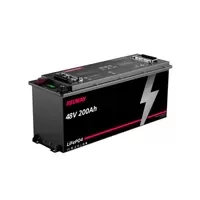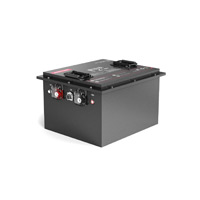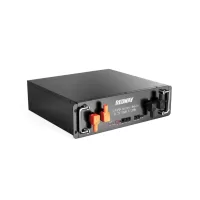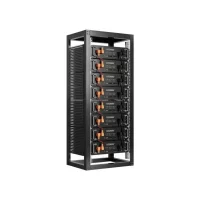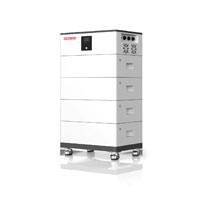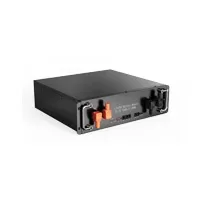Welcome to our blog! Today, we’re diving into the world of Battery Management Systems (BMS) and unraveling why they are an essential component in battery-operated devices. Whether you realize it or not, BMS technology is all around us, powering everything from smartphones to electric vehicles. So, if you’ve ever wondered what makes these devices tick and how they stay charged efficiently and safely, keep reading because we have all the answers for you!
Nowadays, with the increasing demand for portable electronics and the push towards renewable energy sources, batteries have become an indispensable part of our lives. But without a reliable system to manage them effectively, their performance can be compromised and safety risks may arise. This is where BMS steps in as a superhero behind-the-scenes – ensuring optimal operation while safeguarding against potential hazards.
So buckle up as we explore the importance of BMS technology in battery-powered devices!
Importance of BMS in battery-operated devices
Battery-operated devices have become an integral part of our daily lives, from smartphones to electric vehicles. These devices rely on batteries for power, and ensuring the optimal performance and longevity of these batteries is crucial. This is where a Battery Management System (BMS) comes into play.
The importance of BMS in battery-operated devices cannot be overstated. It helps prevent overcharging and undercharging of the batteries, which can lead to damage or reduced capacity. By monitoring the state of charge and managing the charging process, a BMS ensures that the battery operates within safe limits.
Another key function of a BMS is balancing the cells within a battery pack. Each individual cell may have slight variations in voltage levels or capacity, but without proper management, these differences can escalate over time and lead to decreased overall performance. The BMS actively monitors each cell’s voltage and adjusts charging or discharging rates accordingly to maintain balance.
In addition to preventing damage caused by improper charging or cell imbalances, a BMS also provides vital information about battery health and status. It collects data such as temperature, current flow, voltage levels, and more – allowing users to monitor their battery’s condition accurately.
Furthermore, a well-implemented BMS enhances safety by protecting against short circuits or excessive currents that could potentially cause fire hazards in high-capacity batteries.
Implementing a reliable BMS brings numerous benefits for both manufacturers and end-users alike. Manufacturers can ensure product quality while increasing efficiency through optimized use of energy storage systems. End-users enjoy extended battery life with improved reliability due to effective management practices implemented by the BMS.
Industries like automotive (including electric vehicles), renewable energy systems (such as solar power), telecommunications infrastructure (for backup power), medical equipment (for uninterrupted operation), aerospace applications (to improve efficiency) are just some examples that heavily rely on advanced BMS technology for their operations.
As technology advances further towards more sustainable and efficient energy solutions, the future of BMS looks promising. New
Functions of a BMS
Functions of a BMS
A Battery Management System (BMS) plays a crucial role in ensuring the optimal performance and longevity of battery-operated devices. Let’s take a closer look at some key functions that make BMS an essential component.
1. Cell Monitoring: One of the primary functions of a BMS is to monitor individual cells within the battery pack. It constantly measures parameters like voltage, temperature, and current to ensure each cell operates within safe limits.
2. State-of-Charge (SOC) Estimation: A BMS accurately estimates the remaining capacity or SOC of the battery. This information helps users gauge how much power is available and plan their usage accordingly.
3. Voltage Balancing: Cells within a battery pack can have slight variations in voltage levels, which can lead to imbalanced charging or discharging. The BMS ensures equalization by redistributing energy between cells to maintain balance and prevent overcharging or undercharging.
4. Overcurrent Protection: By monitoring current flow, the BMS protects against excessive discharge rates that could damage batteries or compromise device operation.
5. Temperature Control: High temperatures can significantly impact battery health and performance. The BMS monitors temperature levels closely and implements safety measures such as thermal management systems to prevent overheating.
6. Fault Detection & Diagnosis: When abnormalities occur, such as short circuits or cell failures, the BMS detects these faults promptly and takes appropriate actions like isolating faulty cells for improved safety and system reliability.
7.
Battery Safety & Shutdown Mechanisms:Batteries can pose risks if mishandled or exposed to extreme conditions.
The Battery Management System incorporates safeguards like shutdown mechanisms during critical events,to protect both users and the battery itself.
By performing these vital functions,the Battery Management System ensures efficient utilization,reliable operation,and extended lifespan of batteries in diverse applications ranging from electric vehicles to renewable energy storage systems.
So,it’s clear why having an effective BMS is crucial for battery-powered devices.
How a BMS works
How a BMS Works:
A Battery Management System (BMS) is a crucial component in battery-operated devices, ensuring the efficient and safe operation of the batteries. But have you ever wondered how exactly a BMS works?
At its core, a BMS monitors and controls various aspects of battery performance to optimize its lifespan and prevent any potential risks. One of the key functions of a BMS is cell balancing, which ensures that each individual cell within a battery pack is charged and discharged equally. This helps maintain uniform capacity among cells, preventing overcharging or undercharging.
Additionally, the BMS measures important parameters such as voltage, current, temperature, and state of charge. By continuously monitoring these variables, it can provide accurate data on battery health and performance.
The BMS also plays an essential role in protecting batteries from damage caused by extreme conditions or misuse. It includes safety features like overvoltage protection (OVP), undervoltage protection (UVP), overcurrent protection (OCP), short circuit protection (SCP), and thermal management systems to prevent overheating.
Furthermore, some advanced BMSs incorporate communication capabilities to enable real-time monitoring and control remotely. This allows for proactive maintenance actions based on accurate data analysis.
The BMS acts as the brain behind every battery-powered device by managing cell balance, measuring key parameters for performance evaluation while ensuring safety through protective mechanisms – all contributing to optimal functionality and longevity of batteries.
Benefits of using a BMS
Benefits of Using a BMS
There are numerous benefits to using a Battery Management System (BMS) in battery-operated devices. One of the key advantages is enhanced safety. A BMS monitors the battery’s voltage, temperature, and current levels, ensuring that they remain within safe limits. This prevents overcharging or discharging of the battery, which can lead to damage or even fire hazards.
Another benefit is improved performance and efficiency. By continuously monitoring and managing the battery’s state of charge, a BMS optimizes its usage and prolongs its lifespan. It helps prevent capacity degradation by balancing individual cell voltages and ensures that energy is distributed evenly among them.
Furthermore, implementing a BMS reduces maintenance costs. With its ability to monitor vital parameters in real-time, it enables proactive measures like timely replacement of faulty cells or modules before they cause any serious problems. Regular maintenance checks can also be scheduled based on accurate data provided by the system.
In addition to safety and performance enhancements, a BMS offers increased control and flexibility for users. It provides accurate information about the remaining battery capacity, allowing for precise estimation of runtime or range for various applications such as electric vehicles or renewable energy systems.
Moreover, utilizing a BMS can contribute to environmental sustainability by optimizing power consumption through efficient charging/discharging strategies. It promotes energy conservation while reducing carbon emissions associated with conventional power sources.
Incorporating a Battery Management System into battery-powered devices delivers significant advantages including enhanced safety measures, improved performance efficiency, reduced maintenance costs along with increased control and flexibility for users – all while contributing towards achieving sustainable development goals.
Examples of industries that rely on BMS technology
Examples of industries that rely on BMS technology
1. Electric Vehicles (EVs): The automotive industry has seen a significant shift towards electric vehicles in recent years. EVs heavily rely on battery power, making BMS technology crucial for monitoring and controlling the performance and lifespan of their batteries.
2. Renewable Energy: With the growing demand for clean energy sources, industries like solar and wind power heavily depend on batteries to store excess energy generated. BMS helps optimize charging and discharging cycles, ensuring efficient utilization of stored energy.
3. Telecommunications: In the telecommunications sector, backup power systems are essential to maintain uninterrupted communication services during power outages. BMS ensures proper management of battery health and enables timely maintenance or replacement before critical failures occur.
4. Aerospace: From satellites to aircraft, aerospace applications require reliable power systems with long-lasting batteries. A robust BMS is necessary to monitor battery conditions accurately, prevent overcharging or undercharging situations, and ensure optimal performance in extreme environments.
5. Medical Devices: Life-saving medical devices such as pacemakers or insulin pumps require highly dependable batteries for continuous operation. A BMS guarantees safe usage by monitoring critical parameters like voltage levels or temperature fluctuations.
6.
Shipping and Logistics Industry: Battery-powered forklifts used in warehouses rely on efficient battery management to maximize productivity while preventing downtime due to unexpected system failures.
7.
Energy Storage Systems (ESS): These systems play a crucial role in grid stabilization by storing surplus electricity during periods of low demand and releasing it when needed most efficiently possible- thanks to an advanced BMS.
These examples highlight just a few sectors where Battery Management System technology plays a vital role in optimized performance, increased safety standards, enhanced durability of batteries – ultimately resulting in cost savings and improved overall efficiency.
Potential future developments in the field of BMS
Potential Future Developments in the Field of BMS
As technology continues to advance at a rapid pace, so too do the potential future developments in the field of Battery Management Systems (BMS). With increasing demands for more efficient and sustainable energy storage solutions, researchers and industry experts are constantly exploring new possibilities.
One area that holds great promise is the integration of artificial intelligence (AI) into BMS technology. AI has the potential to revolutionize battery management by allowing for real-time monitoring and optimization based on data analysis. This could lead to improved performance, longer battery life, and enhanced safety.
Another exciting development is the use of advanced materials in designing batteries with higher energy density. By utilizing innovative materials such as silicon anodes or solid-state electrolytes, it may be possible to create batteries that can store more energy while remaining compact and lightweight.
Furthermore, there is ongoing research into wireless charging technologies for electric vehicles (EVs) equipped with BMS. Imagine being able to park your EV over a wireless charging pad embedded in your garage floor or at designated parking spots throughout cities – this could revolutionize how we power our vehicles.
Additionally, advancements in nanotechnology hold promise for creating batteries with faster charging capabilities. Nanostructured electrodes could allow for quicker transfer of ions within a battery cell, reducing charging times significantly.
Moreover, developments in renewable energy sources like solar and wind power will also have a significant impact on BMS technology. As these renewable sources become increasingly prevalent, effective integration with battery systems will be crucial to maximize their benefits.
In conclusion,
the future looks bright for Battery Management Systems as researchers continue pushing boundaries and developing innovative solutions. From AI integration to advanced materials and wireless charging technologies – there are endless possibilities on the horizon. As industries across various sectors embrace these advancements,
we can expect more reliable and efficient battery-operated devices that contribute towards a greener future.
Implementing these potential developments will not only improve performance but also reduce environmental impact – a win-win for all.
Conclusion and recommendations for implementing BMS technology
Conclusion and Recommendations for Implementing BMS Technology
In today’s world, where battery-operated devices are becoming increasingly prevalent in various industries, the need for a reliable Battery Management System (BMS) cannot be overstated. From smartphones and laptops to electric vehicles and renewable energy storage systems, a BMS plays a crucial role in ensuring the efficient operation and longevity of batteries.
The importance of BMS lies in its ability to monitor, control, and protect batteries from potential risks such as overcharging, overheating, or excessive discharge. By constantly monitoring parameters like voltage levels, current flow, temperature, and state of charge (SOC), a BMS helps optimize battery performance while preventing damage or failure.
A well-designed BMS performs several functions that contribute to the overall efficiency and safety of battery-powered devices. It accurately measures SOC to provide accurate information about remaining battery capacity. It also balances individual cell voltages within a battery pack to ensure uniform charging/discharging rates across all cells. Moreover, it regulates charging currents based on temperature conditions to prevent thermal runaway events that can lead to catastrophic failures.
So how does a BMS work? Essentially, it is comprised of hardware components such as sensors for measuring various parameters along with microcontrollers or processors for data processing. The software component analyzes the collected data and triggers appropriate actions like controlling charging currents or activating protective mechanisms when necessary.
By implementing an effective BMS system in their operations or products, businesses can benefit greatly. It enhances safety by reducing the risk of accidents caused by faulty batteries. It prolongs battery life by ensuring optimal charging/discharging cycles. This not only saves money but also reduces waste generation from frequent replacement of batteries.
Various industries heavily rely on BMS technology due to its numerous advantages. Electric vehicle manufacturers utilize advanced BMS systems not only for managing the vehicle’s main traction battery but also auxiliary batteries used for lighting and other functions. Renewable energy systems like solar power installations and wind farms also depend on BMS technology to





